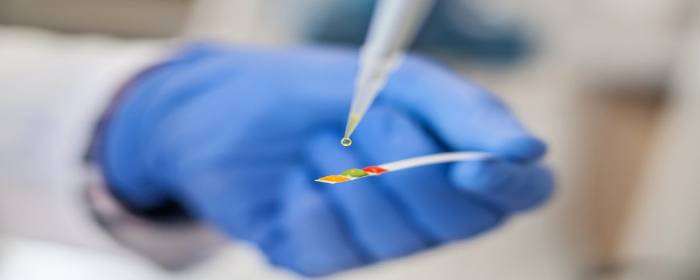Researchers have observed that the pH inside of certain stem cells affects their ability to proliferate and differentiate. These cells include mesenchymal stem cells and pluripotent stem cells, all of which have important applications in regenerative medicine. It is therefore important that pH be optimized to ensure that these stem cells can proliferate and differentiate so that they can be as useful as possible when utilized for therapeutic purposes.
A recent review, published in Current Problems in Dermatology, explored the importance of pH to stem cell function as well as the factors that influence pH. According to the authors, a protein known as the sodium hydrogen exchanger regulates intracellular pH and impacts both the proliferation and differentiation of different types of stem cells. When pH is changed, either within the cell or outside the cell – where the cell is exposed to the change in pH – stem cell functions
The effect of pH in stem cells is highly relevant for skin conditions and therefore for the practice of dermatology. According to the reviewers, research on how the sodium hydrogen exchanger and pH levels affect skin stem cells (also known as epidermal stem cells) and their behavior could enable the discovery of new interventions to improve the use of stem cells in skin therapies. This research would be particularly relevant for skin conditions like melanoma, psoriasis, and wound healing because the movement and proliferation of stem cells are
Reference: Charruyer, A. & Ghadially, R. (2018). Influence of pH on skin stem cells and their differentiation. Current Problems in Dermatology, 54, 71-78.


 St. Petersburg, Florida
St. Petersburg, Florida
